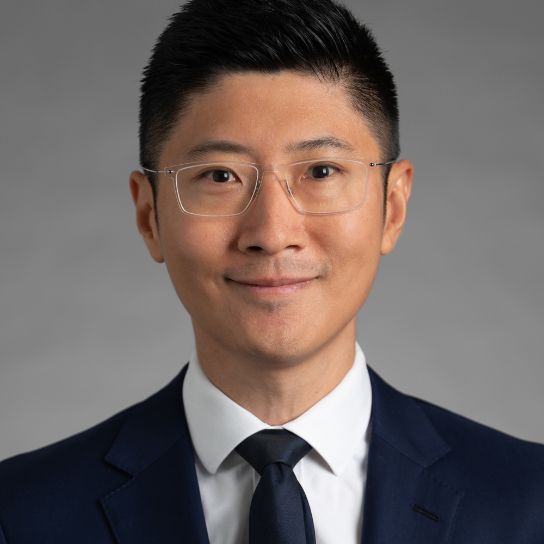China's Supreme People's Court (SPC) has established two new international commercial courts to handle a broad range of international disputes.
The new courts are specifically designed to attract disputes related to the Belt and Road Initiative, and offer a one-stop dispute resolution mechanism with access to mediation, arbitration and litigation.
An International Commercial Expert Committee will be set up and certain international mediation and arbitration institutions will be selected to work alongside the new courts.
However, the market will dictate uptake from here, and the level of acceptance by foreign parties will be key to the courts' success.
Background
The SPC announced in January 2018 that new international commercial courts would be established, particularly to handle disputes arising out of projects under the Belt and Road Initiative.
The SPC passed a set of provisions on 25 June 2018 that clarify the functions and powers of the two new courts, to be established in Shenzhen and Xi'An, and establish a one-stop dispute resolution platform for Belt and Road disputes.
These provisions came into effect on 1 July 2018.
China International Commercial Courts established under the Supreme People's Court
The provisions establish the China International Commercial Courts ("CICC") as a permanent adjudication organ of the SPC to handle five categories of cases:
- First instance international commercial cases in which the parties have chosen the jurisdiction of the SPC and with a claim value of more than RMB300 million
- First instance international commercial cases which are subject to the jurisdiction of the Higher People's Courts who nonetheless consider that the cases should be tried by the SPC and permission of the same has been obtained
- First instance international commercial cases that have a nationwide significant impact
- Applications for conservatory measures in arbitration proceedings or for setting aside or enforcement of international commercial arbitration awards
- Any other international commercial cases that the SPC considers appropriate to be tried by the CICC.
What are 'international commercial cases"?
The term "international commercial case" is broadly defined to mean any case in which one of the following factors is present
- either or both parties is/are a foreign national, enterprises or organisation or stateless persons, or has/have their habitual residence outside China
- the subject matter of the dispute is outside China, or
- the events that create, change or terminate the commercial relationship at issue occurred outside China.
Appointment of judges
Matters will be heard by a panel of three or more judges. According to the provisions, judges will be selected and appointed by the SPC from senior judges who are experienced in trial work, familiar with international treaties and customs and international trade and investment practices, and able to work in both Chinese and English. We understand that the first batch of judges, drawn from a domestic list, have been already appointed.
Conservatory measures
The CICC has powers to order conservatory measures that will be binding on lower courts, and unless otherwise agreed by the parties, determine the substantive law applicable to the dispute. In undertaking the latter, the courts have power to obtain evidence of foreign law from either the parties or third parties.
Evidence
The provisions also set out certain requirements for evidence. In particular, any evidentiary materials submitted by the parties (whether or not they have been authenticated, notarised or otherwise certified) are required to be "cross-examined" at the hearing.
Where the evidence is in English and the other party agrees, the party relying on the evidence is not required to produce a Chinese translation. This in effect enhances the appeal and accessibility of the CICCs for foreign parties.
One-stop dispute resolution mechanism for Belt and Road disputes
The provisions aim to establish a one-stop dispute resolution platform for Belt and Road disputes. By setting up the International Commercial Expert Committee and selecting certain international mediation and arbitration institutions to work alongside the CICCs, the SPC will provide parties with a choice between mediation, arbitration and litigation.
Mediation
Within seven days of accepting the dispute, and upon agreement by the parties, the CICCs are empowered to appoint members of the International Commercial Expert Committee or an international mediation institution to mediate the dispute.
If the parties have reached a mediation agreement, the courts are further empowered to issue a conciliation statement and, at the parties' request, a judgment based on the mediation agreement.
Arbitration
If the parties choose to resolve the dispute by arbitration, the dispute will be referred to an international arbitration body. The parties may apply to the CICCs, either prior to the commencement of or during the arbitration proceedings, for a ruling on the preservation of property, evidence or conduct and, following the issuance of the arbitration award, for setting aside or enforcement of the award.
Enforcement
All judgments and rulings issued by the CICCs are legally effective, whilst a conciliation statement issued by the courts and signed by the parties shall have the same legal effect as court judgments. The parties may apply to the CICCs for enforcement of these judgments, rulings and conciliation statements, or alternatively, to the SPC for a retrial of the same.
E-efficiency
To increase efficiency and convenience of the dispute resolution mechanism, the provisions also provide for electronic case registration, payment, review of files, exchange of evidence, service of process and hearings.
Footnote
The enabling provisions are "Provisions of the Supreme People's Court on Several Issues Regarding the Establishment of International Commercial Courts".
Key contacts
Legal Notice
The contents of this publication are for reference purposes only and may not be current as at the date of accessing this publication. They do not constitute legal advice and should not be relied upon as such. Specific legal advice about your specific circumstances should always be sought separately before taking any action based on this publication.
© Herbert Smith Freehills 2024


